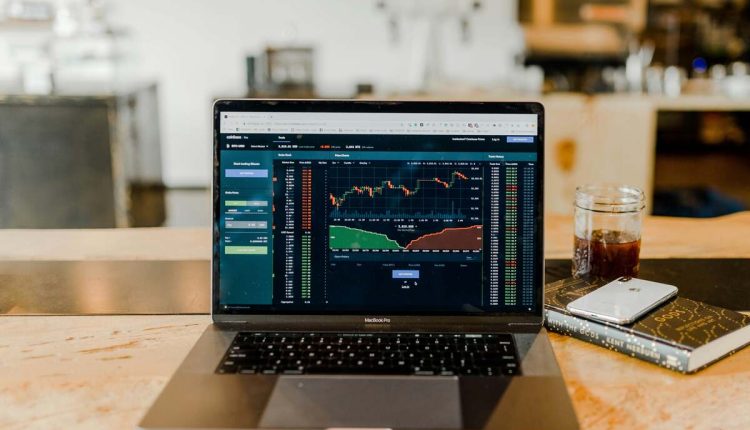What Is a Forex Trader?
Forex traders purchase and sell currency on the foreign exchange market. They may either trade full-time as professionals, earning a living from it, or invest part-time using it to generate additional income. The Interesting Info about forex robot.
The Forex Market is the world’s premier financial marketplace, operating 24 hours per day, five days a week.
The Foreign Exchange Market
Whenever traveling internationally, currency conversion may be necessary at banks and airports. The foreign exchange market is an international financial system where currencies are traded; it operates 24 hours a day, five days a week. Pairs of currencies are traded to determine their relative gains/losses in value; traders profit by buying low and selling high.
Commercial banks, central banks, and hedge funds are the leading players in the forex market. Governments may also trade to implement their monetary policies and stabilize currency values. With its high liquidity and the use of leverage – which amplifies both profits and losses – forex traders find an appealing place to work.
Not only can forex traders trade currencies on the spot market, but they can also enter into forward contracts in the futures market to bind themselves to buying or selling an agreed-upon amount at an established exchange rate on a future date. A key benefit of trading on forex markets is their accessibility: anyone with internet access and a broker account can participate.
Currency Pairs
Currency pairs consist of two intertwined currencies; trading involves analyzing only one. The first currency is known as the base currency, while the second, known as the quote currency, serves as its counter. When trading these currency pairs, only the price displayed shows how much quote currency it takes to buy one unit of base currency.
A trader will aim to gain profit by anticipating changes in the relative strength between these currencies, such as interest rate differentials, political risk, or economic expansion or contraction.
Some traders focus on dollar-containing pairs as they have higher volumes and liquidity on the forex market, yet other currency pairs are traded regularly as well. It is important to remain aware of how pairs interact with one another since trades that are negatively correlated can dramatically increase risk. Learning and practicing currency correlations before entering live trading environments is paramount to successful investing.
Leverage
Leverage allows traders to invest with less capital by using leverage in trading markets. Leverage can increase both your returns and losses on every trade, giving traders greater potential profits but increasing risk as well.
Forex trading involves purchasing and selling currencies on the global foreign exchange market, which operates 24 hours per day and five and a half days each week. Currencies are pitted against each other to see which will gain in value while others decline; each pair then determines which will gain more.
Currency markets can be unpredictable, making it essential that traders understand the economic fundamentals behind each pair. These may include things such as interest rates, central bank policies, and economic growth rates. To successfully trade, you should have a clearly laid out plan and be flexible enough to change it as needed; additionally, you must feel at home trading with high stakes environments allowing for rapid up and downs in price fluctuations, which demonstrates why it’s crucial to practice before investing real money.
Trading Platforms
Forex trading platforms are digital hubs that enable traders to buy and sell financial assets such as stocks, commodities, currencies, and cryptocurrencies. Typically developed by large financial brokerage firms or direct market access providers, these platforms feature tools such as real-time price quotes, news feeds, charts, and other features designed to assist traders in analyzing markets more easily.
When selecting a trading platform, look for one that meets your trading styles and can connect you to global markets. Furthermore, check that it offers multiple ways to make deposits and withdrawals, including bank transfers and digital wallets.
Look for a platform that provides various order types, such as pending and stop-loss orders. Customizable alerts and technical indicators should help inform trading decisions. Also necessary are any fees or commissions charged by using specific platforms—make sure to read all applicable fine print in terms of account opening fees, transaction costs, or inactivity costs before selecting your platform of choice.
Education
Forex markets, like most markets, are subject to various influences which affect the supply and demand of currencies. These influences include interest rates, economic news, and political events – factors that traders must understand in order to make profitable trades; for instance, when central banks announce measures such as quantitative easing measures, a currency may decrease against its major counterparts.
Successful forex traders must also have the skills and strategies needed to maximize profit opportunities, including being aware of what factors impact the market and understanding different forms of chart analysis, such as line charts.
Starting forex trading can be straightforward for individuals, as many large stockbrokers now provide currency trading services to their clients. However, this market tends to be more unpredictable than others and requires a high degree of risk tolerance, so it is advised that potential traders start off using a practice account to experiment with trading strategies and learn about leverage before investing real money in trading tangible assets.

